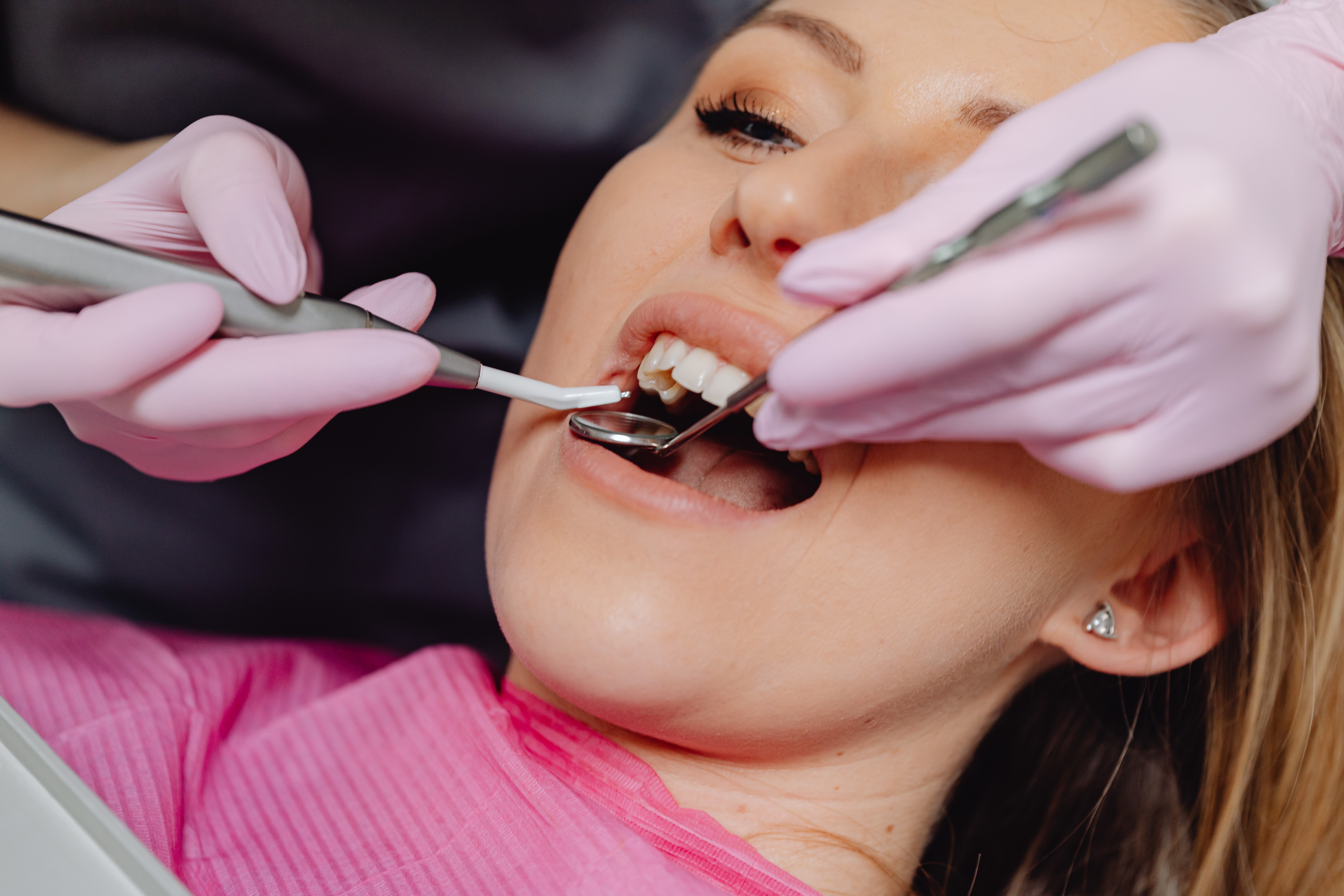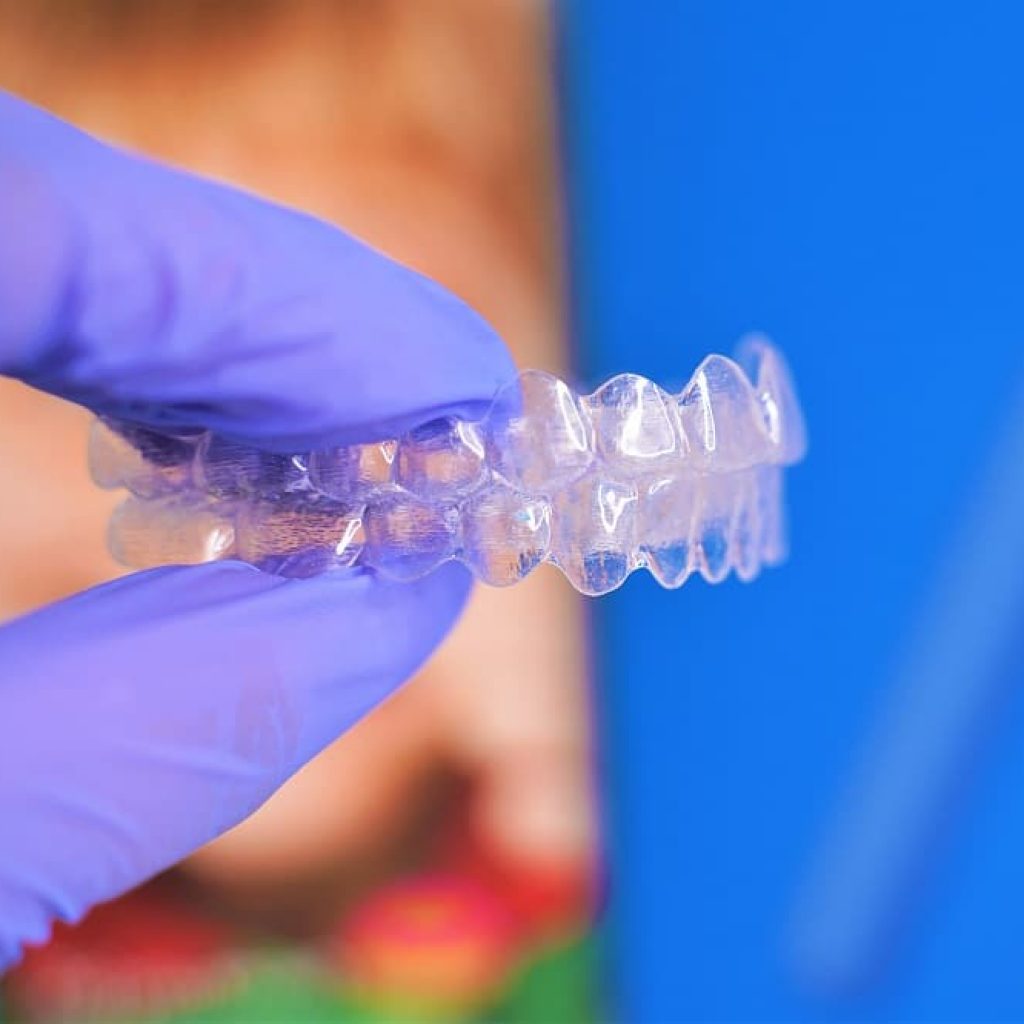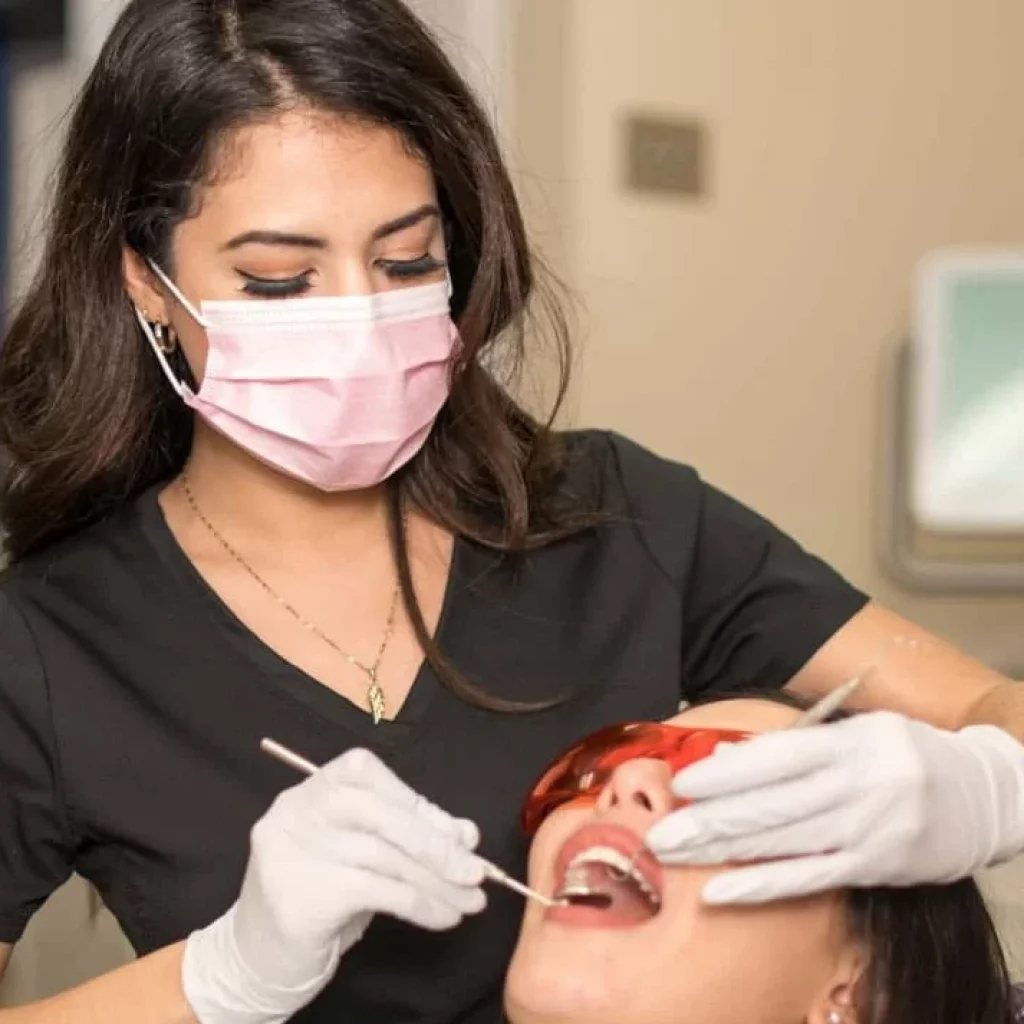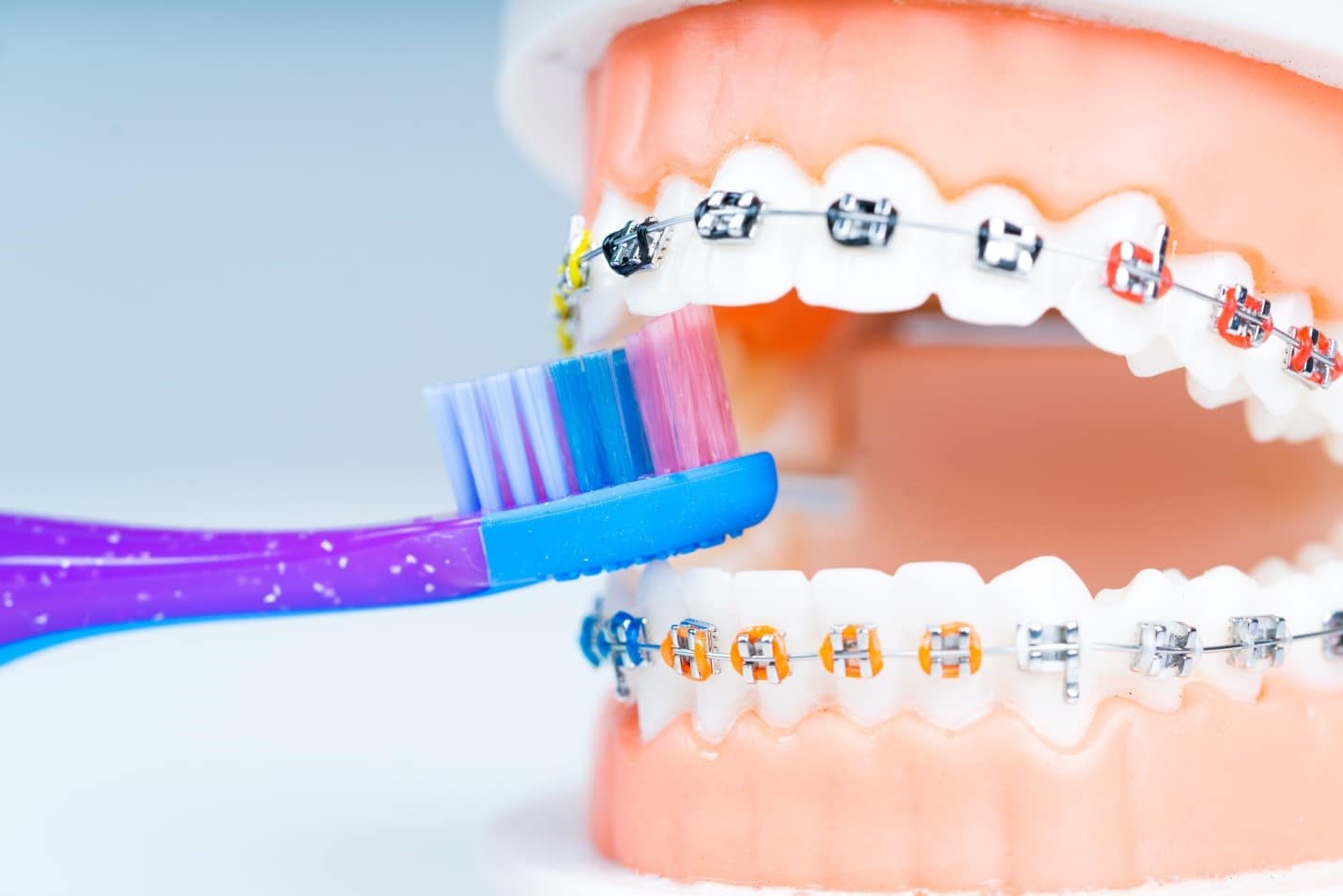Deep teeth cleaning is a dental procedure known as scaling and root planing, which concerns removing plaque and tartar from below the gum line. This process is usually suggested for patients who have gum disease. Deep teeth cleaning is a procedure in which the dentist uses special tools to remove the buildup of plaque and tartar from the teeth and roots of the teeth. The main aim of the procedure is to prevent further damage to the gums and teeth and help improve overall oral health. During the process, the dentist will provide you with anesthesia to make the patient comfortable.
During the procedure, the dentist cleans the tooth's front, back, and sides above and below the gum line. The dentist removes tartar and buildup from the "pocket" between the tooth's and gums' roots.

Are Teeth Cleaning Essential?
To determine the general health of your mouth, your dentist will typically recommend deep teeth cleaning after inspecting your teeth and gums and taking X-rays. Teeth cleaning prevents the infection from growing.
A thorough teeth cleaning is frequently recommended as the next step instead of actual periodontal surgery if your gums are infected, or your gingivitis has progressed to the point where they are peeling away from the teeth and forming pockets or holes that expose the bone that are 5 millimeters deep or more.
Remember that if you don't treat your gingivitis or other gum issues, they can turn into periodontitis, which causes the pockets between your teeth and gums to get so deep that the bacteria start to harm the bone of the tooth and supporting structures of your teeth. That can damage your tooth, and you may lose it or become loose, so your dentist has to extract it.
Deep tooth cleaning may lessen the depth of the pockets and delay the onset of gingivitis.
What Happens During Deep Teeth Cleaning?
Scaling and root planing are the two components of a thorough cleaning of the teeth.
Scaling.
At this stage of the process, the miami children dentist cleans the entire pocket, including the bottom, by removing all plaque and tartar (hardened plaque) that have built up below the gumline.
Planing.
Your dentist or dental hygienist will smooth out your tooth roots as the next stage of deep cleaning so that the gums can reconnect to your teeth. It may need more than one visit to complete your deep cleaning.
Even though the pockets should be clear of bacteria following a thorough cleaning, your gum tissue may probably still feel delicate. In the following weeks, your dentist will provide detailed instructions on caring for your teeth. It's advisable to be cautious about your diet and brushing technique. Additionally, your dentist will advise using mouthwash to decrease bacteria.

Your dentist will ask you to visit for a checkup in a few months. Although deep teeth cleaning may seem like a significant step, it is a helpful technique to get rid of infection and tartar so your gums can heal quickly. You can also talk to your dentist about the disadvantages of deep cleaning teeth, although the disadvantages are minor compared to the advantages it provides.
In Conclusion:
The deep teeth cleaning procedure is designed to treat gum diseases like gingivitis, remove tartar and bacteria from below the gum lines, and prevent them from worsening. If left untreated, it may cause other oral health problems. You may even lose your tooth. Visit your dentist and learn more about the deep cleaning procedure
Article Source : https://www.ihealthytips.com/how-does-deep-teeth-cleaning-process-work/.
Tooth decay is a common dental issue that affects people of all ages. However, children are especially susceptible to tooth decay due to their developing teeth and oral hygiene habits. Tooth decay can lead to various oral health problems, including gum disease, cavities, and tooth loss. Fortunately, preventing and treating tooth decay in kids is relatively easy with the right strategies.
Talk to the kids orthodontist near me dentist to know more about your child's oral health.
How Does Diet Prevent Tooth Decay?
Diet plays a crucial role in preventing tooth decay in children. Foods and drinks high in sugar and carbohydrates can develop the growth of harmful bacteria in the mouth, leading to tooth decay & cavities. It's important to encourage your child to eat a healthy, balanced diet low in sugary and processed foods to prevent tooth decay.
Some foods that can help promote oral health include fresh fruits and vegetables, lean proteins, whole grains, and dairy products. Please encourage your child to drink plenty of water throughout the day, as it helps wash away harmful bacteria and keep the mouth hydrated.

Effective Oral Hygiene Habits for Children.
In addition to a healthy diet, effective oral hygiene habits are essential for preventing tooth decay in kids. As soon as your child's first tooth appears, it's necessary to start brushing and flossing their teeth regularly. Always Use a soft-bristled toothbrush & fluoride toothpaste to clean your child's teeth and gums twice daily gently.
Flossing is also essential for removing plaque & bacteria from between the teeth. Encourage your child to floss daily, and help them until they can do it themselves. Regular dental health checkups are also crucial for maintaining good oral health. Please schedule an appointment with pediatric dentists Miami fl, for routine checkups and cleanings.
Fluoride: A Strong Tool in the Fight Against Tooth Decay.
Fluoride is a mineral that's essential for maintaining strong and healthy teeth. It's found in most tap water sources and many kinds of toothpaste and mouthwash. Fluoride helps strengthen tooth enamel and can even reverse the early stages of tooth decay.
A pediatric dentist may recommend fluoride treatments if your child needs more fluoride through diet and water. These treatments involve applying a fluoride gel or varnish to the teeth to help strengthen them and prevent tooth decay.
Treating Tooth Decay in Children.
Suppose your child develops a cavity or other form of tooth decay. In that case, seeking treatment as soon as possible is essential. Left untreated can lead to serious oral health problems and even tooth loss. The best way to treat tooth decay in children is with a filling, which involves removing the decayed portion of the tooth & filling it with a tooth-colored material.

If the tooth decay is severe, a pediatric dentist may recommend a crown or root canal to save the tooth. In some scenarios, the tooth may need to be extracted to prevent further damage to the surrounding teeth and gums.
To find a pediatric dentist Miami beach, consider looking online or asking for friends and family recommendations. The pediatric dental center of Miami is an excellent resource for parents looking to maintain their child's oral health.
In Conclusion:
In conclusion, preventing and treating tooth decay in kids is essential for maintaining good oral health. Encourage your child to eat a healthy diet, practice good oral hygiene, and visit the best orthodontist in Miami, fl, regularly. You can help your kid maintain a healthy & beautiful smile for years with the best oral health.
Article Source : https://www.articleslurp.com/preventing-and-treating-tooth-decay-in-kids/
Do your child has an overbite? But there are ways to fix an overbite. Can braces correct the overbite problem? Many people come up with this question, and the answer is Yes. Overbite braces are the most common device that can help to fix an overbite problem.
When visiting the orthodontist, they may suggest many treatment options for an overbite. Depending on the severity of your child's case, your dentist may recommend treatment options.
An overbite needs to be fixed as early as possible or later, and setting it may take more time and cost even more. There are two terms "overbite" and "overjet." The term "overbite" is used to describe the front teeth that overlap vertically. But most people use the phrase to explain how the teeth overlap horizontally. Although the term "overjet" is used informally by most people to tell the horizontal overlap of teeth, it is the correct phrase. To know more about overbites, you can consult with orthodontists specialists in Florida.

What is an Overbite?
Jaw misalignment results from an overbite (a deep or closed bite). Therefore, it occurs when the top teeth overlap the bottom teeth.
When the mouth is closed, the upper teeth overlap with the bottom teeth by more than 20%. Over 20% is considered an overbite, and you may need orthodontic treatment.
While some overbites will be apparent, others may be less apparent. A visit to an orthodontist is the best approach to finding out if an overbite is present. To examine the teeth and determine the severity of the overbite, an orthodontist will take some X-rays to confirm it. To know more about it, you can see overbite before and after braces pictures to see if the dentist has worked on the same overbite problem.
It is also necessary for children around age seven when their mouth is still growing and the adult teeth have just begun to erupt. Children should consult an orthodontist, and children who receive early orthodontic care can effectively correct an overbite.
What are the causes of overbites?
Having certain habits may increase an overbite risk. The following factors may cause children's overbites:
- Continual thumbsucking in young children
- prolonged dummy use in kids
- Some children have nail-biting habits that can cause an overbite to occur.
- Chewing on pens or other intricate items
- Some children may genetically develop an overbite due to teeth grinding (bruxism). Nevertheless, genetics apart, avoiding these habits as soon as possible can reduce the likelihood of getting an overbite.
Talk to a pediatric dentist Miami, fl, if your child has such habits. It is better to reduce the practices that can cause an overbite problem.

Can Braces Fix An Overbite?
Many ways can help to fix an overbite. You must first visit an orthodontist to see if it is an overbite. The professional orthodontist will examine and know the severity of the cause. After reviewing the overbite, your dentist will pick a few treatment options, including braces or surgery, to fix an overbite.
Braces alone can't fix an overbite. That is why your dentist may suggest the following:
- Rubber bands
- Palatal expander
- Jaw surgery
- Tooth removal
In Conclusion:
Schedule an appointment with your dentist. To know how the treatment looks, you can ask the dentist for overbite before and after images to ensure the treatment. Visit your dentist now for more details.
Article Source : https://www.articleentry.com/how-do-orthodontists-fix-overbites-in-children/





